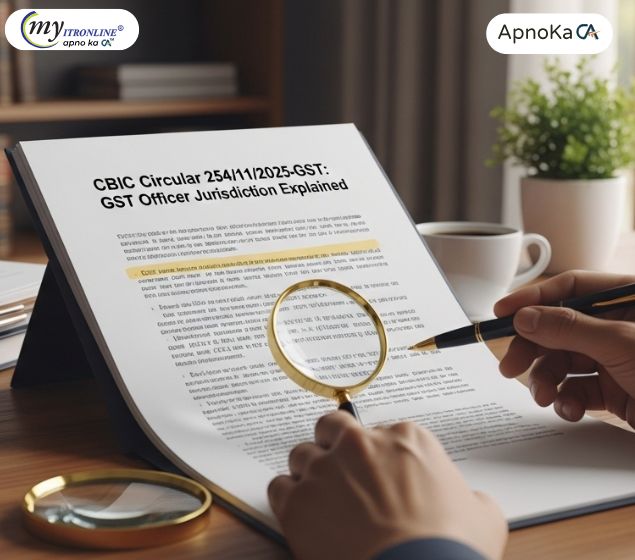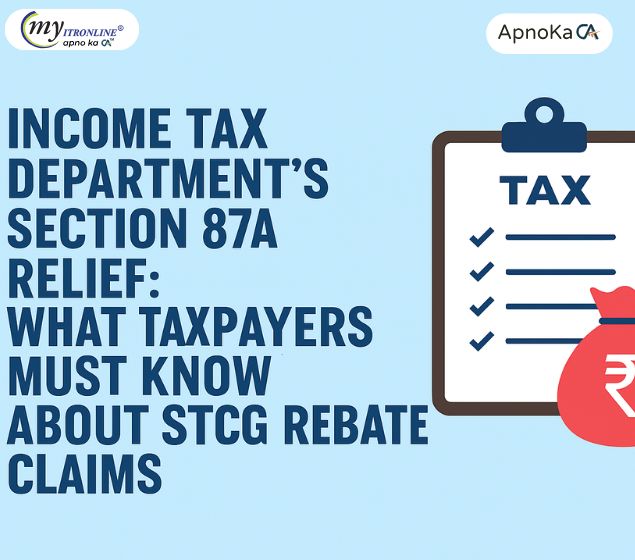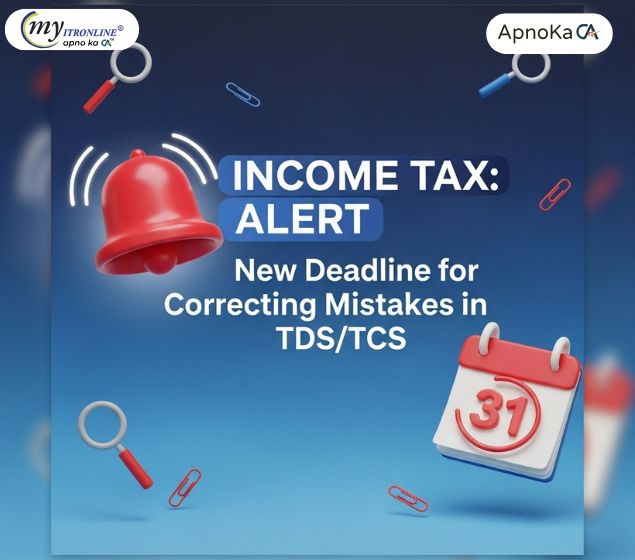# taxnotice
12 posts in `taxnotice` tag

Tax Alert: Got an Income Tax Notice for Buying Property in Wife’s Name? Here’s What to Do
Buying property in your wife’s name can trigger an Income Tax Notice. This guide explains the spouse exemption under the Benami Act, how Section 64 clubbing works, and the exact documents and steps to respond. Act fast, stay transparent, and keep your paperwork ready.

Did Your Large Cash Deposit Trigger an Income Tax Notice? Don't Panic!
Large cash deposits in bank accounts often trigger Income Tax notices in India. Banks are required to report high‑value transactions, and the ITD may ask for clarification if deposits exceed thresholds. With proper documentation like invoices, sale deeds, or gift deeds you can explain the source of funds and avoid heavy taxes or penalties. Notices are not accusations but part of routine scrutiny.

Refund Adjusted Against Outstanding Demand: What You Need to Know
If your income tax refund is adjusted against an old tax demand, it’s likely due to Section 245 of the Income Tax Act. This blog explains what the notice means, how to respond within 30 days, and what options you have. Learn how to protect your refund and keep your tax records clean.

CBIC Circular 254/11/2025-GST: GST Officer Jurisdiction Explained
CBIC has issued Circular No. 254/11/2025-GST to clarify which officers will handle GST cases related to tax, ITC, and penalties under the CGST Act. This blog explains the officer levels, monetary limits, and key sections covered, making it easier for taxpayers to understand who will manage their case.

Income Tax Department’s Section 87A Relief: What Taxpayers Must Know About STCG Rebate Claims
The Income Tax Department has issued relief for taxpayers who claimed Section 87A rebate on short-term capital gains (STCG). If demands are paid by December 31, 2025, interest will be waived. Learn what went wrong, what’s been clarified, and what you should do next.

194J vs. 44AD: Tax Scrutiny on India's Content Creators & Consultants
This blog post addresses the increasing tax notices faced by Indian content creators, influencers, and consultants due to a common mismatch: clients deducting TDS under Section 194J while they file income tax returns under Section 44AD. It breaks down the key tax provisions (194J, 44AD, 44ADA), explaining what each means for freelancers and businesses. The article clarifies that a 194J deduction doesn't automatically mandate filing under 44ADA; the crucial factor is whether the profession is listed under Section 44AA. It details potential impacts on tax burden, cash flow, and the need for increased documentation, while also offering actionable steps for creators and consultants to ensure compliance, including clarifying work nature, maintaining records, client communication, cash flow monitoring, and seeking professional tax advice.

Income Tax Alert: New Deadline for Correcting Mistakes in TDS/TCS
The Income Tax Department has given a final chance to correct mistakes in TDS/TCS returns for FY 2018–19 to FY 2023–24. The correction deadline is March 31, 2026. After this, only 2 years will be allowed for revisions, and unresolved errors may lead to tax notices.

Before You Click That Tax Notice: Read This Security Alert.
This blog provides a simple guide to help taxpayers differentiate between genuine and fraudulent income tax notices. It outlines five key verification steps, such as checking the DIN and sender details, to prevent falling victim to financial scams.
.jpg)
The 1,50,000 Mistake: Why Filing Under 44AD Instead of 44ADA Could Wreck Your Finances
This blog post addresses a common but serious error made by professionals and freelancers who incorrectly file their income tax returns under Section 44AD (for businesses) instead of the appropriate Section 44ADA (for professionals). It explains the fundamental differences between the two sections, how the Income Tax Department's AI systems detect this discrepancy through TDS mismatches and unusually low-profit declarations, and the severe consequences that follow, including mandatory audits and multiple financial penalties. The article concludes by offering a clear, step-by-step guide on what to do if you receive a notice for this mistake, emphasizing the importance of consulting a professional and taking prompt corrective action.

PAN-Aadhaar Linking: CBDT Offers Major Relief on TDS Demand Notices (2025 Update)
In a major relief for Indian taxpayers, the Central Board of Direct Taxes (CBDT) has waived demands for short TDS deduction arising from payments to inoperative PAN holders. This addresses the widespread issue where deductors received tax notices for not applying the higher TDS rate mandated for unlinked PANs. This blog details the conditions of this relief as per CBDT Circular No. 9/2025, outlines the crucial deadlines like September 30, 2025, and explains the actionable steps for both deductors and deductees to benefit from this waiver and ensure future compliance.

ITR-B Online: New Ease for Section 158BC Notices
This blog post details a significant update for taxpayers who have received a notice under Section 158BC of the Income-tax Act, 1961. It explains that Form ITR-B, a special return for undisclosed income found during past search and seizure operations, can now be submitted conveniently through the Income Tax portal's e-Proceeding tab. The article clarifies what a Section 158BC notice entails, highlights the benefits of online submission (convenience, efficiency, transparency), provides step-by-step guidance, and emphasizes the crucial role of professional advice for these complex assessments.
.jpg)
Income Tax Notice under Section 143(2): Meaning, Scrutiny Process, Deadlines & Response Guide
Have you received a notice under Section 143(2)? Don’t panic. This blog explains what it means, why it’s issued, the deadlines to track, and how to respond effectively ensuring you're well-prepared for any scrutiny with confidence.
